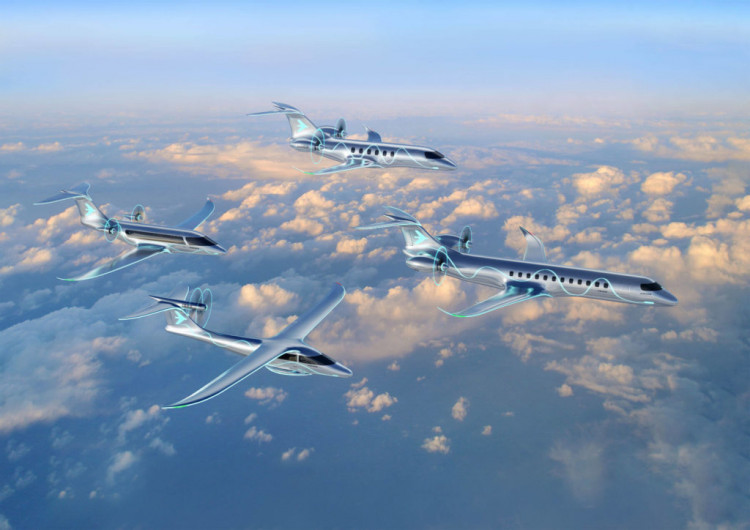Embraer, a Brazilian aerospace company, has unveiled a family of low- or zero-emission concept aircraft for the regional market, including hybrid-, all-electric, and hydrogen-powered versions, that it wants to fly in the next decades.
The concept aircraft family, dubbed "Energia," was introduced during a live-streamed presentation.
Embraer is still in the early stages of developing its green aircraft line, having teamed up with "an international consortium of engineering universities, aeronautical research institutes, and small and medium-sized enterprises" to better understand the energy harvesting, storage, and thermal management challenges that the new concepts will encounter.
"The future of aviation must have a lower impact," Embraer said on its site detailing the plans. "It means lower emissions, lower noise levels and lower fuel consumption."
Details of the new aircraft were revealed following a recent live webcast held by the Brazilian airframe manufacturer in August, during which an overview of their idea for a next generation turboprop aircraft with rear-mounted engines was provided.
According to Embraer, the four concepts might enter service between 2030 and 2040, although that depends on final designs being manufactured, tested, certified, and acquired by airlines:
The Energia Hybrid would have nine seats, two rear-mounted cameras, and a hybrid-electric propulsion system. It has the potential to reduce carbon emissions by up to 90%.
On the tail assembly of the Energia Electric, there would be two contra-rotating propellers, or two propellers positioned one behind the other. It would be able to accommodate nine passengers while emitting zero emissions due to its all-electric nature.
The Energia H2 Fuel Cell has been expanded to accommodate 19 passengers. It resembles the Hybrid with its two rear-mounted engines, but it would run on hydrogen fuel cells and emit zero emissions.
Finally, the Energia H2 Gas Turbine would be a zero-emission gas turbine that could run on two alternative fuel sources (biofuel or hydrogen). It would be the most spacious of the bunch, with 35 to 50 seats and two rear-mounted engines.
In addition, the Brazilian company has committed to reducing its own carbon emissions by 50% by 2030, a figure that shows the industry's rising awareness of its responsibilities to pursue sustainable technologies.
According to most estimates, air travel is responsible for 5% of the emissions that cause climate change, and the UN predicts that number will triple by 2050.
Embraer's announcement comes a year after Airbus, which has also signed the industry 2050 pledge, unveiled three concepts for hydrogen-hybrid aircraft powered by modified gas turbine engines that run on liquid hydrogen.






